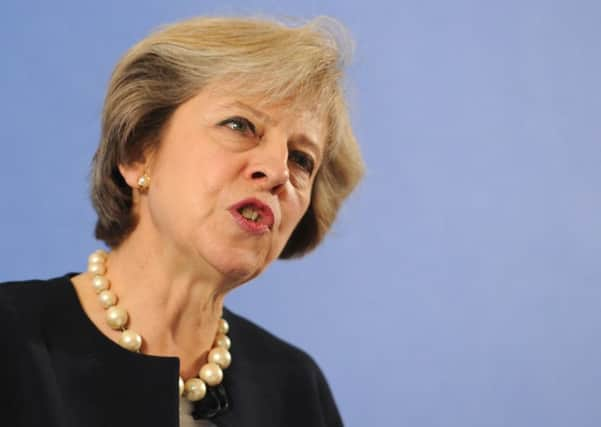Row over May's plan to bring back selection in schools


The Prime Minister unveiled proposals to lift the long-standing ban on new or expanded grammars – with a £50m annual Government subsidy to support new places – in a speech outlining her ambition to make Britain “the great meritocracy of the world”.
In her first major policy speech since becoming Prime Minister, Mrs May insisted there will be “no return to secondary moderns”, which have been branded the sink schools of the pre-comprehensive era and blamed for consigning the majority of children to academic failure.
Advertisement
Hide AdAdvertisement
Hide AdShe maintained her reforms were designed to provide “a good school place for every child and one that caters for their individual needs”.
But the plans were criticised by leading figures including Ofsted’s Chief Inspector of Schools, Sir Michael Wilshaw, who accused her of trying to “put the clock back” in a way which would halt momentum towards better results in the state system.
And Nicky Morgan – who was sacked as Education Secretary in July – warned that increased selection by ability would be “at best a distraction from crucial reforms to raise standards and narrow the attainment gap and at worst risk actively undermining six years of progressive education reform”. Labour also vowed to fight the proposals “every step of the way” in Parliament, while the Liberal Democrats denounced them as “divisive”.
The Sutton Trust education think-tank said the Government must ensure that grammar schools do more to attract disadvantaged pupils, warning that existing grammars are “highly socially selective” because of the ability of wealthier parents to use private tutors and prep schools to improve their children’s chances of a place.
Advertisement
Hide AdAdvertisement
Hide AdBut the announcement won a warm reaction among some Tory backbenchers, including Michael Fabricant, who said it marked a move to “meritocracy instead of the chumocracy or old boys’ network”, and Nadine Dorries, who said: “Thank God the schoolboys have gone and a grown-up is in charge.”
Outgoing Ukip leader Nigel Farage said he was “delighted” that “yet another flagship Ukip policy goes mainstream”.
The general secretary of school leaders’ union NAHT, Russell Hobby, described the plan as “a risky distraction from the real issues in education”.
“England’s schools need increased funding and more high-quality teachers. By focusing on grammar schools, the Government is choosing the least likely path to take us towards a country that works for everyone,” he said.
Advertisement
Hide AdAdvertisement
Hide AdDave Hill, president of the Association of Directors of Children’s Services, warned of the impact of selection on children living in care.
“Introducing more selection based on achievement creates a more segregated education system and this is particularly concerning when it comes to our most vulnerable learners, including children in care,” he added.
Sir Peter Lampl, chairman of the Sutton Trust, said: “We welcome the expectation that grammar schools do more to attract disadvantaged pupils, building on proposals we made.
“Sutton Trust research has shown the existing grammar schools to be highly socially selective, mainly because of private tuition and prep schools for those who can afford them. The Government should ensure that existing grammar schools get it right before opening more.”
Advertisement
Hide AdAdvertisement
Hide AdThe Rev Steve Chalke, founder of the Oasis charity that runs 47 academies in England, welcomed the goal to eradicate selection by postcode or wealth but warned “any attempt to sift and separate students at 11 years old can only be counter-productive to this”.